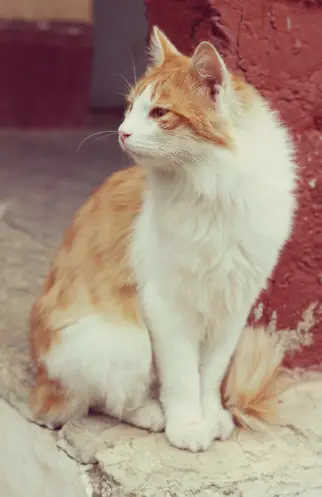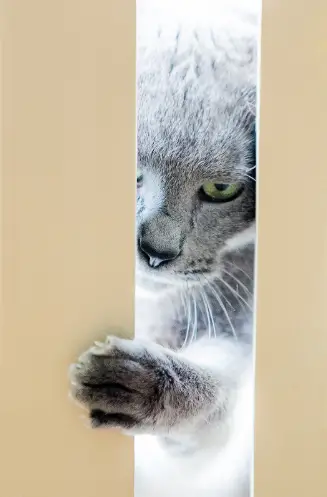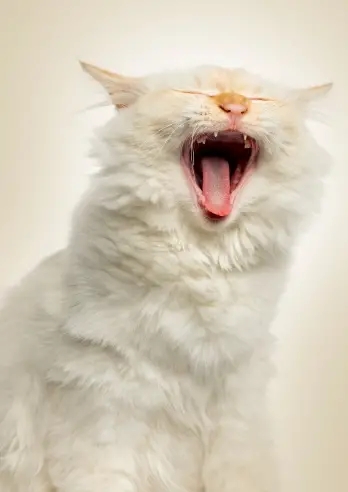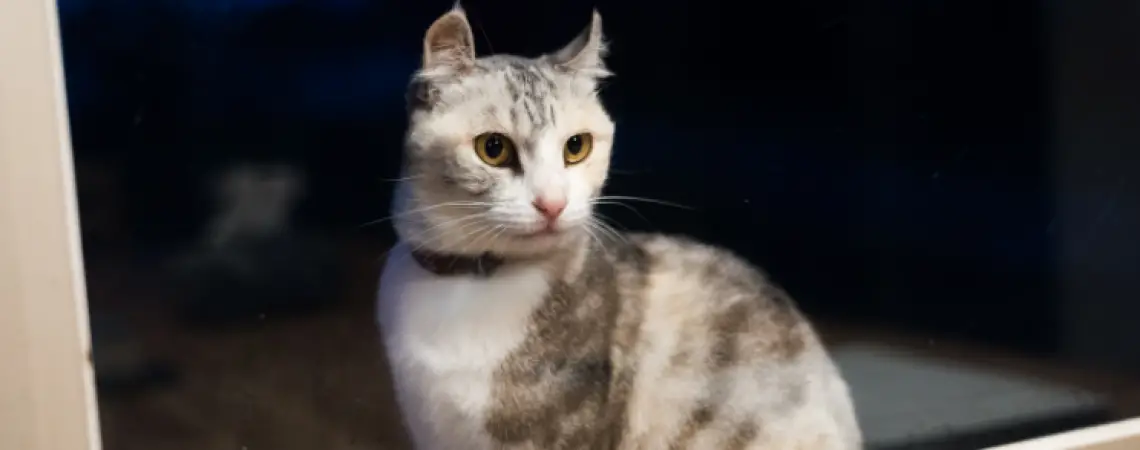
For pet owners, few things are more troublesome than a fur baby crying at night. While I’m sure you came here for a quick fix, the truth is, there is none. That’s because cats cry at night for a number of different reasons!
So, instead of asking “why do cats cry at night”, you should instead be asking “why does MY cat cry at night”. In this article, we’ll talk about common reasons that cats cry in the night and what to do about it.
Why do cats cry like a baby at night?
Cats can make some weird noises that can cover a wide range of sounds from meowing, trilling, and even crying like a baby! For this particular sound, it’s often seen from female cats that are in heat.
However, male cats also make a “yowling” sound, typically at night when they are looking to attract a mate. So, if you cat is not fixed, then this should be your first step as it could very well curb these behaviors.
It’s never “too late” to get your cat fixed, and in some cases, it can even be beneficial to their health. This includes a reduced risk of reproductive cancers, and cats that are fixed could even live 3-5 years longer!
However, cats are also pretty good at changing the sounds they make. It’s possible that they’ve figured out that you respond to this noise, and they’re making it to get your attention, or there could be another reason, keep reading for more reasons and potential solutions.
Is your cat anxious?

Why do cats make weird noises at night other than being in heat you might ask? Well, anxiety could be the answer. If you’ve just recently moved, gotten another animal, or even another person has moved into the house, then your cat could be feeling a little put out by the experience.
In many cases, the cat will calm down as time goes on and their ill behavior will cease. However, you might find that you need to make some changes to you or your cat’s routine to make them comfortable and stop them from yowling all night.
This could include providing a space for them in the house that is their own. Choosing an area with less foot traffic where your cat can go to relax is a good start for treating their anxiety.
How do you know if your cat is anxious? Well, other than some unusual noises, anxious cats might also start urinating outside of their litter box, frequent hiding, aggression, and following people around the house, likely people that they would trust to protect them.
Is your cat lonely?
Cats sleep an average of 15 hours per day, typically in “cat naps” and at odd hours. These hours rarely line up with a human sleeping schedule, and it’s likely that your cat is ready to play at 2 am and doesn’t understand why you aren’t ready to play with them.
Despite their reputation for being aloof, most cats do actually enjoy getting attention from people. It’s possible that your cat is restless and lonely, and they’re trying to communicate with you for some play time.
This one won’t be a quick fix, but attempting to re-adjust your cat’s schedule can work here. Try playing with them a lot in the evening and tiring them out, or even feeding them a big meal before you go to bed, as cats tend to sleep after eating.
Or, you could also try getting your cat some more toys to play with so they can amuse themselves while you’re sleeping. Or, even give them access to a window to stare out, because this will amuse a cat for hours, even at night.
Is your cat in pain or ill?
Your cat’s frequent meowing could be an attempt to communicate that something is wrong with their body. Sometimes cats that are ill or in pain can pick up this habit. It’s worth taking your cat to the vet for a check up to make sure that it’s nothing serious at the least.
An over active thyroid or kidney disease could be the source of your cat’s night time noise making, and if you’ve noticed that your cat has been drinking excessively, urinating frequently, or that their breath smells like ammonia, then you should bring these symptoms to the attention of your vet so that they can perform an appropriate diagnosis.
However, if your cat is very old, then it’s possible that their body aches are making them restless at night and causing their yowling. You might look into giving them an anti-inflammatory supplement, which greatly helps to reduce joint swelling and ease arthritis pain, allowing them to rest.
Is your cat training YOU?

Many cats meow when they are about to be fed, and sometimes, they put two and two together and learn to be really annoying to get fed.
If this is the case for your cat, then their night time routine could be attributed to begging.
Breaking your cat of this habit is tough, and you’re going to have to put up with a lot of noise until they realize that yowling doesn’t get them what they want. Don’t put down the bowl until your cat is quiet.
You need to reward them for doing the behavior you want (being quiet), and not reinforcing the idea that making noise gets them food.
Don’t just ignore your cat’s cries
While it’s tempting to try to ignore them, the fact is, your cat is trying to communicate with you. It’s important that you make sure that there is not a pressing issue at hand such as an empty water bowl, or blocked litter box access.
While all animals should have regular vet check ups, if this new behavior is quite recent, then you should push up your vet appointment. Make note of any other odd behaviors you witness from your cat such as more frequent litter box usage, attitude changes, or other symptoms that may indicate a serious medical issue.
Though even if it’s not serious, it’s clear that your cat has needs that aren’t being met. Bored, stressed, and lonely animals not only get into trouble in attempts to entertain or express themselves, but they live unhappy and possibly even shortened lives because of it.


